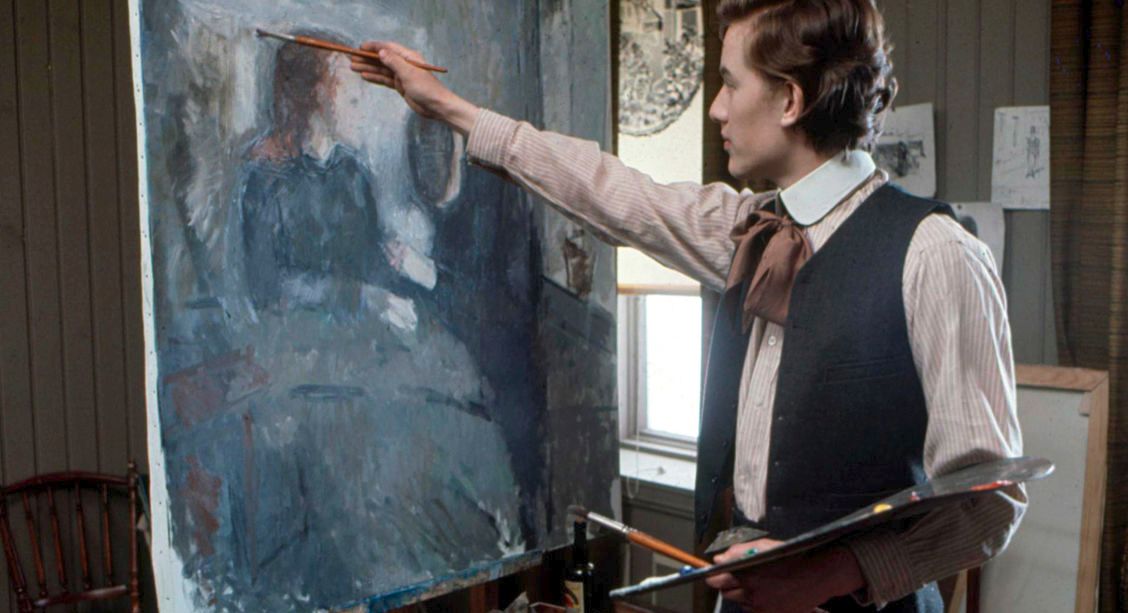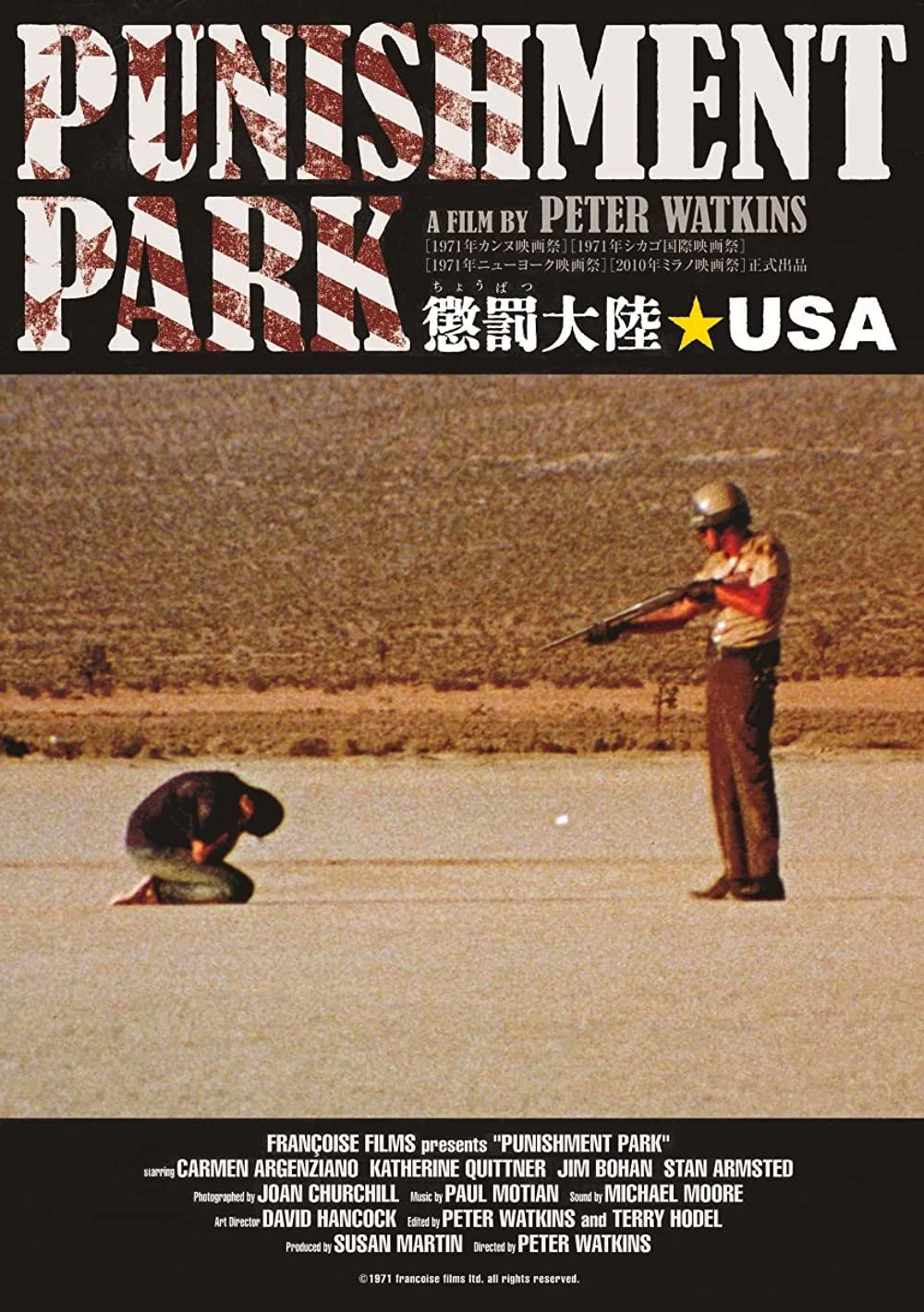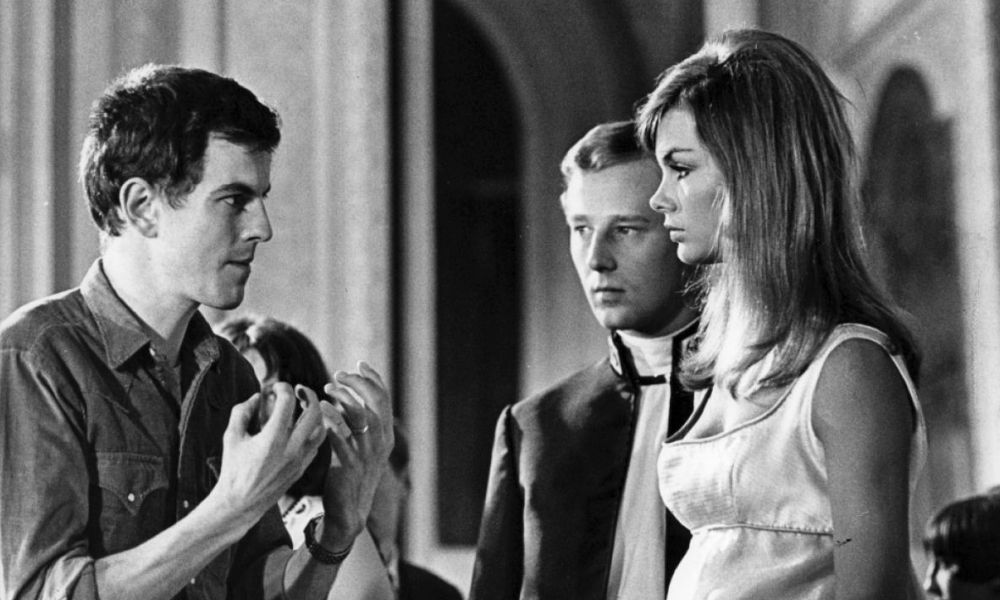"The brilliant, cantankerous British director Peter Watkins deserves more credit and attention than the critical establishment has so far given him… He was one of the most gifted filmmakers of his generation but also, sadly, one of the most neglected." - James M. Welsh (The Encyclopedia of Great Filmmakers, 2002)
Peter Watkins
Director / Screenwriter / Editor / Producer
(1935-2025) Born October 29, Norbiton, Surrey, England
Top 250 Directors
(1935-2025) Born October 29, Norbiton, Surrey, England
Top 250 Directors
Key Production Countries: UK, Sweden
Key Genres: Drama, Military & War, Politics & Government, History, Documentary, Mockumentary
Key Collaborators: Odd-Geir Saether (Cinematographer), Peter Suschitzky (Cinematographer), Michael Bradsell (Editor)
Key Genres: Drama, Military & War, Politics & Government, History, Documentary, Mockumentary
Key Collaborators: Odd-Geir Saether (Cinematographer), Peter Suschitzky (Cinematographer), Michael Bradsell (Editor)
"He started out as an assistant producer on commercials and in the late 50s began making amateur films, including The Diary of an Unknown Soldier (1959) and The Forgotten Faces (1961). Two feature-length semidocumentaries he made for BBC-TV in 1964-65, Culloden and The War Game, revealed him as an anti-establishment man who uses an unadorned newsreel style and nonprofessional actors to express his ideas." - The Film Encyclopedia, 2012
"Peter Watkins is something of an enigma in the history of moving image production. He is celebrated as an innovator of the docudrama form, yet the socio-political elements in his work go largely undiscussed. The films he made in the 1960s are rightly lionised in the UK but his later films have, historically, been almost entirely ignored… Although plagued with production difficulties - often amounting to outright obstruction - and in many cases very hard to see, the scope, critical weight and level of experimentation in Watkins' films is undeniable. In an age when the media stranglehold on both our lives and the means by which we communicate is ever tightening, his films remain a vital tool for considering new forms of image-making and a vibrant and engaging force in their own right." - Will Fowler (BFI Screen Online)

Edvard Munch (1974)
"Watkins' hard-hitting realism has come to encompass powerful essays on the nature of art and the media. He seems to have an unrelenting social conscience with little interest in humor or objectivity." - William R. Meyer (The Film Buff's Catalog, 1978)
"Famed in increasingly small cinephiliac circles as one of the great firebrands of film history, Peter Watkins’s singular reputation rests on his unabashedly leftist politics, his righteous indignation, and his openly polemical strategies. If, that is, he’s even known at all; always antagonistic toward traditional methods of distribution and industry conventions, frustrated by the fact that his films have been subject to active suppression if not outright censorship, he hasn’t made a film in twenty years, his output reduced to a few missives sporadically posted to his website." - Jacob Hovind (Senses of Cinema, 2022)
"British director of controversial, realistic, docudramas that examine historical events of the past, resent, and possible future…. Watkins is best known for igniting a political firestorm when his docudrama The War Game (1965) was banned by the BBC for its graphic portrayal of nuclear war." - Tim Evans (501 Movie Directors: A Comprehensive Guide to the Greatest Filmmakers, 2007)
"Watkins’ experimental, provocative, controversial and polemical cinema and his own forthright, abrasive personality have lead to a frustrating, if not entirely unsurprising, marginalisation of both the director and his work. Watkins’ pioneering ‘docudrama’ style – a bold and vivid collage of newsreel type footage, voice-over narration, roving hand-held camerawork, fourth-wall-breaking sequences and frequent use of amateur actors – has blurred the lines between fact and fiction in pseudo-documentary films that cast a critical eye over past, present and near-future political issues. More influential than many might realise, elements of Watkins’ groundbreaking filmmaking technique have had a noticeable impact on televisual docudramas, the documentary form itself, big-screen ‘mockumentaries’, the Dogme 95 directors and the films of Peter Greenaway and Michael Winterbottom among many others." - Neil Mitchell (BFI, 2016)
Selected Filmography
{{row.titlelong}}
GF Greatest Films ranking (★ Top 1000 ● Top 2500)
21C 21st Century ranking (☆ Top 1000)
T TSPDT R Jonathan Rosenbaum S Martin Scorsese
21C 21st Century ranking (☆ Top 1000)
T TSPDT R Jonathan Rosenbaum S Martin Scorsese
Peter Watkins / Fan Club
David Ehrenstein, Emilio Bustamante, Michael Atkinson, Robert Greene, Nick Wrigley, Alex Cox, Jonás Trueba, Ben Wheatley, John Gianvito, Leo Goldsmith, David Heslin, Sean Gilman.
David Ehrenstein, Emilio Bustamante, Michael Atkinson, Robert Greene, Nick Wrigley, Alex Cox, Jonás Trueba, Ben Wheatley, John Gianvito, Leo Goldsmith, David Heslin, Sean Gilman.
"Fan Club"
These film critics/filmmakers have, on multiple occasions, selected this director’s work within film ballots/lists that they have submitted.
These film critics/filmmakers have, on multiple occasions, selected this director’s work within film ballots/lists that they have submitted.


